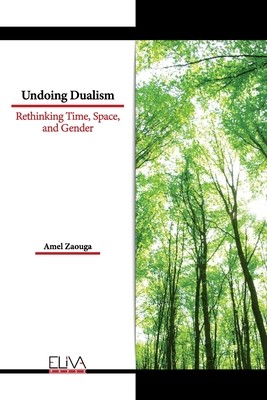
- We will send in 10–14 business days.
- Author: Amel Zaouga
- Publisher: Eliva Press
- ISBN-10: 9994984950
- ISBN-13: 9789994984954
- Format: 15.2 x 22.9 x 0.3 cm, minkšti viršeliai
- Language: English
- SAVE -10% with code: EXTRA
Reviews
Description
This book seeks to develop a conception of time as a category open to continuous rethinking and to consider it in the mid of multiple forces like space and gender and how this perception empowers one gender and limits the power of the other gender. Guided by the postcolonial perspective on temporal difference, emphasis is put on how revisiting historical processes disrupts the linear notion of time by narrating various moments as disjunctive parts of the same story. Nonlinear narratives demonstrate that cyclical time as opposed to linear time, does not only mean defeat but also may encode the repetition of possibility through attention to historical exclusion and recourse to harmony with the nonhuman world. The concepts of cyclicality and harmony with nature largely correspond to the ecofeminist conceptualizations of time in terms of multiplicity and acknowledgement of difference.
The notion of difference is developed as a major destabilizer of dualism The acknowlegement of differences between previously polarized and dualized categories allows for hybridization and multiplicity. Instead of advocating homogenization, which risks falling into non-identity, relationships of mutualism may offer a more egalitarian view of society and ecology. Emphasis put on both biological and cultural diversity comes to respond to the indeterminacy around the monolithic condition of human life. Hence, the continuity that can exist between militant movements does not have to reduce women, nature, and animals into one category. The identity of each category needs to be preserved and though different, they can still forge a strong bond against the forces of exclusion.
EXTRA 10 % discount with code: EXTRA
The promotion ends in 21d.02:11:47
The discount code is valid when purchasing from 10 €. Discounts do not stack.
- Author: Amel Zaouga
- Publisher: Eliva Press
- ISBN-10: 9994984950
- ISBN-13: 9789994984954
- Format: 15.2 x 22.9 x 0.3 cm, minkšti viršeliai
- Language: English English
This book seeks to develop a conception of time as a category open to continuous rethinking and to consider it in the mid of multiple forces like space and gender and how this perception empowers one gender and limits the power of the other gender. Guided by the postcolonial perspective on temporal difference, emphasis is put on how revisiting historical processes disrupts the linear notion of time by narrating various moments as disjunctive parts of the same story. Nonlinear narratives demonstrate that cyclical time as opposed to linear time, does not only mean defeat but also may encode the repetition of possibility through attention to historical exclusion and recourse to harmony with the nonhuman world. The concepts of cyclicality and harmony with nature largely correspond to the ecofeminist conceptualizations of time in terms of multiplicity and acknowledgement of difference.
The notion of difference is developed as a major destabilizer of dualism The acknowlegement of differences between previously polarized and dualized categories allows for hybridization and multiplicity. Instead of advocating homogenization, which risks falling into non-identity, relationships of mutualism may offer a more egalitarian view of society and ecology. Emphasis put on both biological and cultural diversity comes to respond to the indeterminacy around the monolithic condition of human life. Hence, the continuity that can exist between militant movements does not have to reduce women, nature, and animals into one category. The identity of each category needs to be preserved and though different, they can still forge a strong bond against the forces of exclusion.


Reviews